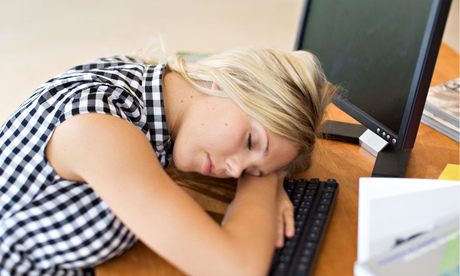
This month has brought ample evidence of the power of sleep to affect us, and demonstrated why we need to start treating sleep as the vital health, safety, and social issue that it is. I've been evangelising about the upside of downtime for many years but it seems like every week brings yet more evidence.
For instance, research teams from the US and China have discovered some of the ways in which sleep consolidates memory and learning. In the study, the scientists were able to actually see new connections being formed while we (or in this case, mice) sleep. It also found that getting more sleep led to higher performance than training more and sleeping less. "So it is probably better to study and have good sleep rather than keep studying," NYU professor Wen-Biao Gan, one of the researchers, told the BBC.
Then there is the growing awareness of the importance of sleep for workplace performance. The Daily Mail reports that earlier this month Vincent Walsh, professor of human brain research at University College London, said that not only should employers permit their employees to nap at work, but that staff should be able to work whichever hours are best for them. "If we want people to be more creative we need people to be able to do less," he said. "Companies should allow naps in the afternoon. They should get rid of the habit of clocking in and clocking out."
Given what we know about how sleep affects virtually every aspect of cognitive performance, physical performance, and creativity, this makes complete sense. Good employers give their employees the tools they need to do their jobs. They provide computers, desks, bathroom, air conditioning, internet service, and phones. Why not also provide the flexibility and encouragement for employees to make optimal use of their most powerful tools: their minds, their energy and their creativity?
At the Huffington Post, we have two nap rooms, and I'm happy to say that they're almost always booked. And more and more companies are realising that what's best for the health of their employees is also what's best for their bottom line. In the US, about 35% of large and mid-size companies offer stress reduction programmes of some kind. While in the UK, even the Bank of England is now offering meditation classes.
We've also recently seen the negative – in this case tragic – impact of the lack of sleep with the news that the Walmart truck driver who crashed into the limo carrying comedian Tracy Morgan and several others may have gone more than 24 hours without sleep at the time of the accident, which killed one and critically injured three, including Morgan.
Of course, we don't have all the facts surrounding the accident yet, but regardless of the particulars of this case, we do know that sleep is not given nearly the respect it deserves as a society-wide safety issue. The numbers are staggering, both in the US and in the UK:
• Driving tired or falling asleep at the wheel is the cause of about 20% of accidents on long journeys on main roads and motorways.
• Falling asleep at the wheel is the most common single cause of a truck driver being killed at work or of a truck killing other drivers.
• 37% of car, van and truck drivers have said they carried on driving when too tired.
• As many as 10% of people who use their vehicles for work have admitted falling asleep at the wheel in the past year of their driving.
Enormous progress has been made combating drink driving – going from almost 16,000 killed in the US in 1991 to just over 10,000 in 2012. And yet there's been comparatively little outcry about driving while drowsy. But, in fact, the effects are very similar. A study published in Occupational and Environmental Medicine found that going just 17-19 hours without sleep (a normal day for many of us) can produce levels of cognitive impairment equivalent to a blood-alcohol level of 0.05%, just under the legal limit in many US states. A few hours more and you're up to the equivalent of 0.1% – over the limit.
This translates to hundreds of millions of people worldwide essentially driving drunk every day. But since there's no test for drowsiness, it's all the more important to change the perception of going without sleep. Instead of being celebrated and bragged about, it should be discouraged in the workplace and considered deadly on the road.
The science is in on the powerful benefits sleep can give us, as are the grim statistics on the deadly consequences of believing we can get by without it. "We are the supremely arrogant species," Russell Foster, professor at Oxford told the BBC last month. "What we do as a species, perhaps uniquely, is override the clock. And long-term acting against the clock can lead to serious health problems."
It's time to put to bed the idea that sleep is "nice to have", or even nonessential for some people, recognise that it's an "absolute need to have" – and wake up to the central role it plays in all our lives.

